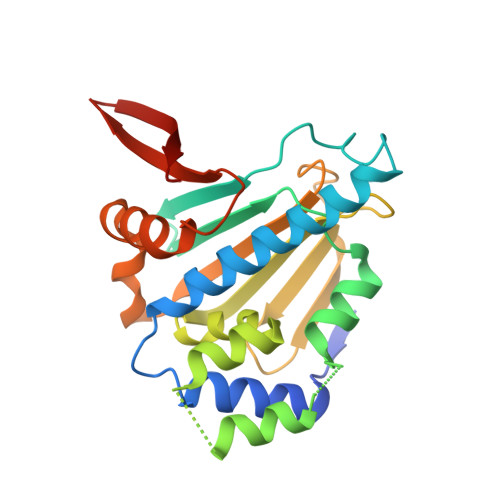Isoform-selective Hsp90 inhibition rescues model of hereditary open-angle glaucoma.
Stothert, A.R., Suntharalingam, A., Tang, X., Crowley, V.M., Mishra, S.J., Webster, J.M., Nordhues, B.A., Huard, D.J.E., Passaglia, C.L., Lieberman, R.L., Blagg, B.S.J., Blair, L.J., Koren, J., Dickey, C.A.(2017) Sci Rep 7: 17951-17951
- PubMed: 29263415
- DOI: https://doi.org/10.1038/s41598-017-18344-4
- Primary Citation of Related Structures:
5TTZ - PubMed Abstract:
The heat shock protein 90 (Hsp90) family of molecular chaperones regulates protein homeostasis, folding, and degradation. The ER-resident Hsp90 isoform, glucose-regulated protein 94 (Grp94), promotes the aggregation of mutant forms of myocilin, a protein associated with primary open-angle glaucoma. While inhibition of Grp94 promotes the degradation of mutant myocilin in vitro, to date no Grp94-selective inhibitors have been investigated in vivo. Here, a Grp94-selective inhibitor facilitated mutant myocilin degradation and rescued phenotypes in a transgenic mouse model of hereditary primary open-angle glaucoma. Ocular toxicities previously associated with pan-Hsp90 inhibitors were not evident with our Grp94-selective inhibitor, 4-Br-BnIm. Our study suggests that selective inhibition of a distinct Hsp90 family member holds translational promise for ocular and other diseases associated with cell stress and protein misfolding.
Organizational Affiliation:
Department of Molecular Medicine and Byrd Alzheimer's Research Institute, University of South Florida, Tampa, FL, 33613, USA.



















